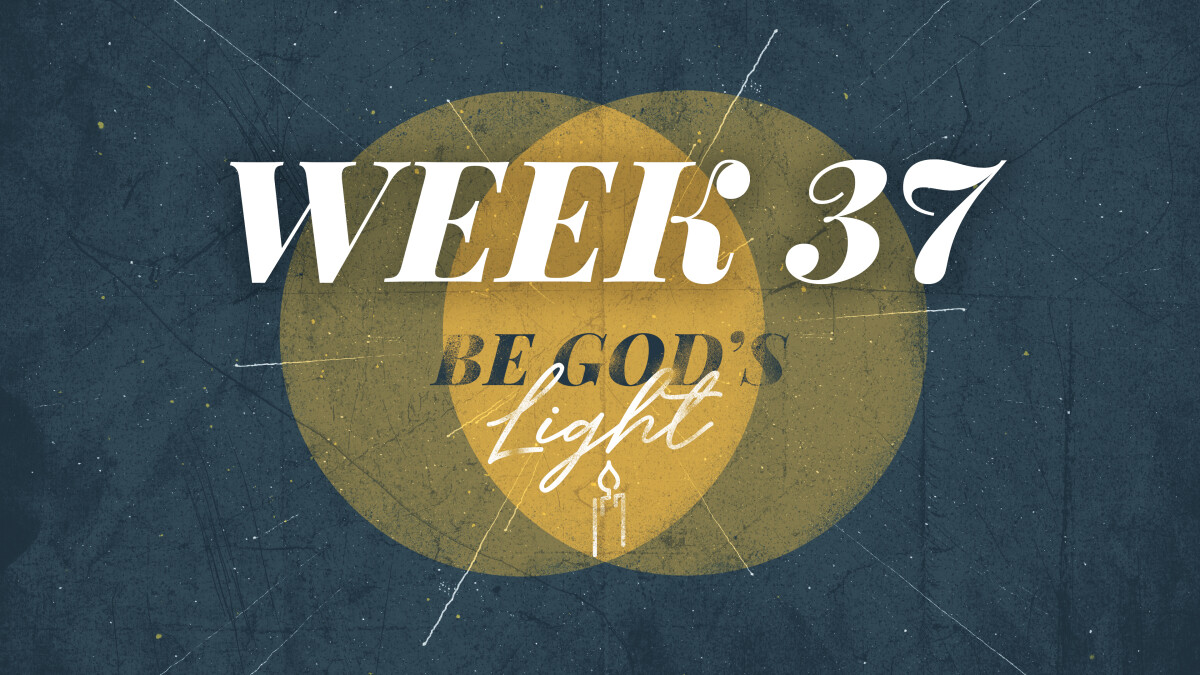September 18, 2024 | Be God's Light

Two Baskets of Figs
Scripture: Jeremiah 24(NIV)
1 After Jehoiachin son of Jehoiakim king of Judah and the officials, the skilled workers and the artisans of Judah were carried into exile from Jerusalem to Babylon by Nebuchadnezzar king of Babylon, the Lord showed me two baskets of figs placed in front of the temple of the Lord. 2 One basket had very good figs, like those that ripen early; the other basket had very bad figs, so bad they could not be eaten.
3 Then the Lord asked me, “What do you see, Jeremiah?”
“Figs,” I answered. “The good ones are very good, but the bad ones are so bad they cannot be eaten.”
4 Then the word of the Lord came to me: 5 “This is what the Lord, the God of Israel, says: ‘Like these good figs, I regard as good the exiles from Judah, whom I sent away from this place to the land of the Babylonians. 6 My eyes will watch over them for their good, and I will bring them back to this land. I will build them up and not tear them down; I will plant them and not uproot them. 7 I will give them a heart to know me, that I am the Lord. They will be my people, and I will be their God, for they will return to me with all their heart.
8 “‘But like the bad figs, which are so bad they cannot be eaten,’ says the Lord, ‘so will I deal with Zedekiah king of Judah, his officials and the survivors from Jerusalem, whether they remain in this land or live in Egypt. 9 I will make them abhorrent and an offense to all the kingdoms of the earth, a reproach and a byword, a curse and an object of ridicule, wherever I banish them. 10 I will send the sword, famine and plague against them until they are destroyed from the land I gave to them and their ancestors.’”
Devotional
The Babylonian empire attacked Judah and took exiles from there back to Babylon in three waves over more than twenty years. The first period of deportation took place in 605 BC under King Jehoiakim. During this wave, Daniel was taken captive.
The second round of Jews deported to Babylon happened in 597 BC under King Jehoiachin. Ezekiel was exiled during this wave.
The third period of deportation ended Judah’s monarchy in 586 BC under King Zedekiah. Today’s reading took place between the second and third waves of deportation. The two baskets of figs represented two kinds of people from Judah.
The good figs stood for the people already exiled to Babylon. God promised to watch over them, build them up, plant them deep, give them a heart for Him, make them His, and bring them back home in the future. How would each of these promises have been an encouragement to the people who had been deported?
The bad figs stood for King Zedekiah and those who were defiantly making an alliance with Egypt instead of turning their hearts back to God. Words describing their future included abhorrent, offence, reproach, byword, ridicule, cursing, banished, sword, famine, plague, destroyed. How should these words have been a stark warning to those remaining in Judah? In the end, they did not listen, and all of these things happened to them. Why?
For us today, what are some of the promised blessings for following God? By contrast, what are some of the clear warnings of discipline for refusing to follow God?
Everyone knows John 3:16. But the next few verses are less familiar. How do they add to today’s topic?
For God did not send his Son into the world to condemn the world, but to save the world through him. Whoever believes in him is not condemned, but whoever does not believe stands condemned already because they have not believed in the name of God’s one and only Son. (John 3:17-18)
Poem
A Tisket, A Tasket
A tisket, a tasket
Two figs fill two baskets
One fruit fine, the other spoiled
One delight, other recoiled
A dipple, a deeple
Two promises, two people
One safe and guarded though exiled
One unrepentant, garbage piled
A wiffle, a waifful
One God who is faithful
One righteous, justice seeking force
One God determines human course

